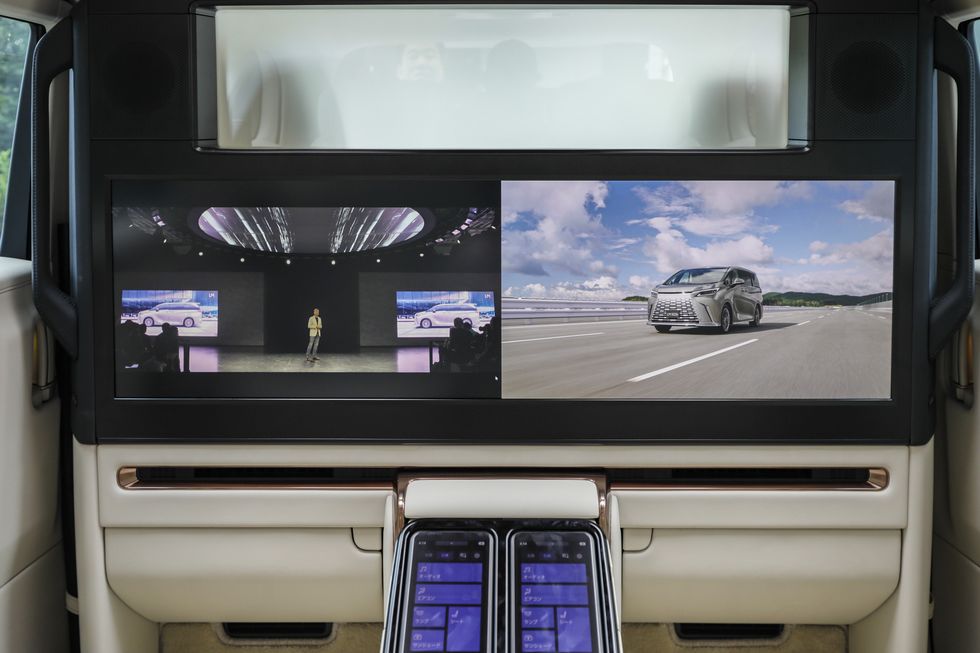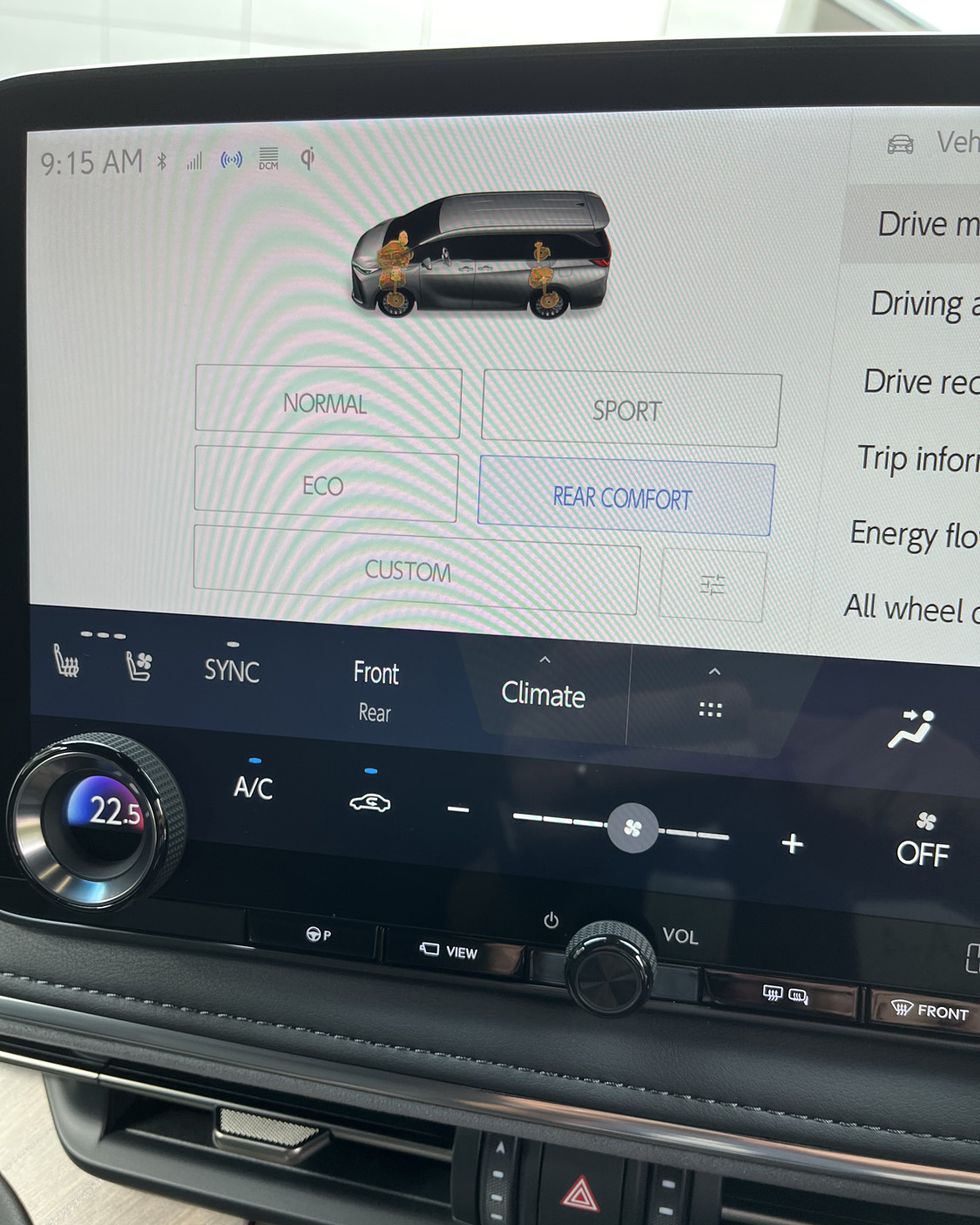Minivans are awesome. They’re vastly more space efficient than the three-row SUVs Americans have flocked to, and their lower ride height tends to both impart dynamic advantages and ease ingress and egress. But imagine how much stretch-out space there would be if you replaced a minivan’s second and third rows with just two princely seats.
You don’t have to imagine if you travel to Asia, where the van as executive shuttle is alive and well in countries such as South Korea, China, and Japan. Lexus debuted its new top-dog van, the LM, for luxury mover, earlier this year, and we just got a chance to take the short step up into its rear cabin at an event Lexus hosted at Fuji Speedway for a brief ride (and drive).
Naturally, the rear-seat occupants are kings of the castle, with myriad controls at their disposal. There’s a glass divider between front and back that can be powered up and down as well as turned opaque at the touch of a button. Just below that spanning most of the width of the cabin is a mammoth, 48.0-inch screen. The display has screen-mirroring functionality and can function as two separate halves if two occupants want to display different things. There’s a refrigerated compartment ahead of the rear-seat occupants, and tray tables fold out of the armrests.
Almost everything is power-operated: side shades, a separate sunroof shade for each side, and of course numerous seat adjustments. For the first time, both the arm- and leg rests are heated, and an infrared sensor scans occupants’ body temperature in four specific areas and then adjusts the HVAC and seat heating and ventilation accordingly.
Although the LM is many inches taller than the minivans sold in the U.S., it’s actually a couple inches shorter in length and wheelbase than, say, a Honda Odyssey. Nevertheless, motor the seat all the way back to nearly flat and extend the leg rest and even this lanky six-foot-five executive wannabe has enough room to fully extend his legs, something not remotely possible in even the most stretched variants of Mercedes S-class. The tunes are enhanced by a 23-speaker Mark Levinson stereo, and the entire rear area is impeccably trimmed in leather and suede.
There’s also a new Rear Comfort mode, which dials back throttle response, shifts the brake distribution more rearward, and softens the dampers in an attempt to help the driver keep the boss in back happy. From the driver’s seat, the LM feels bigger than it is because its steeply angled windshield makes for about three feet of dash between gauge cluster and glass.
All LMs are hybrids, either a LM350h that’s available in either front- or all-wheel-drive that uses the naturally aspirated 2.5-liter inline-4 and familiar planetary hybrid arrangement that makes for a CVT, as in the Toyota RAV4 Hybrid. The LM500h gets the turbocharged 2.4-liter and six-speed setup, which in the RX500h makes 366 hp, and comes only with all-wheel drive. If buyers want more passenger flexibility, the LM has a third-row option. Even the more powerful LM500h doesn’t feel terribly fleet, but the ride quality is creamy.
Already on sale in China, the LM starts at the equivalent of roughly $200,000, but that outrageous price seems like a Chinese-market anomaly. In Japan, where the LM will be sold for the first time alongside its Toyota Alphard platform-mate, the Alphard’s price range is $36,500 to about $60,000.
But no chance it’s coming to the U.S., where not enough people understand how great the minivan can be.
This content is imported from poll. You may be able to find the same content in another format, or you may be able to find more information, at their web site.
Director, Vehicle Testing
Dave VanderWerp has spent more than 20 years in the automotive industry, in varied roles from engineering to product consulting, and now leading Car and Driver‘s vehicle-testing efforts. Dave got his very lucky start at C/D by happening to submit an unsolicited resume at just the right time to land a part-time road warrior job when he was a student at the University of Michigan, where he immediately became enthralled with the world of automotive journalism.
Read the full article here





